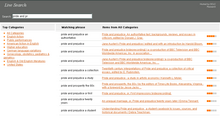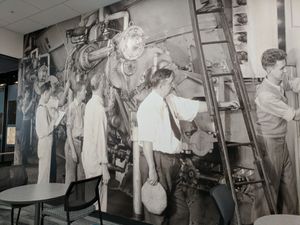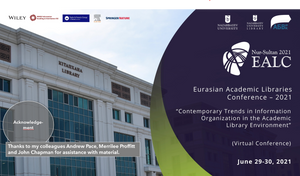 Maybe we need an ILSSLI. That’s ILS Service Layer Interfaces, or maybe ILS Service Layer Initiative.
Maybe we need an ILSSLI. That’s ILS Service Layer Interfaces, or maybe ILS Service Layer Initiative.
Lots of things have come over my horizon recently where interesting interfaces are talking to the integrated library system in the background. Here are some:
- There is the much lauded NCSU catalog which needs to communicate with ILS data and services. It is likely that other configurations of this pattern will emerge, where libraries source discovery functionality separately from the ILS.
- There is the very nice Greasemonkey experiments of Dave Pattern, surfacing catalog information in the Amazon interface. Richard Wallis also shows some Greasemonkey scripts in action where library functionality is presented in Amazon.
- OpenWorldCat and RedLightGreen interact with library systems.
- Close by, Thom has been working to bring up the Phoenix Public Library catalog data in his classified/frbrized livesearch interface. He needs to drop into the Phoenix catalog at various stages if he is to provide a fully featured experience.
- John Blyberg has described a REST interface to his system (see the interesting discussion in the comments to this post). He has also intriguingly suggested that he plans to build APIs to which his patrons might write applications.
We are seeing a growing need to be able to interact with the ILS in various ways, so that some functionality can be placed in another interface – to show status of an item, to place a hold, to do lots of things. Interestingly, many of these are examples of the need to interact between a backend system and a loosely coupled discovery engine. Now, we have some existing protocol-based approaches which are variably implemented. And we have a range of local fixes, proprietary deep-linking syntaxes, brittle scraping, and so on.
Maybe it is time to think about defining a service layer to the ILS that would allow some of these things to be done in more routine ways, and which increases the portability and scope of current solutions.
Clearly there is much that could be contributed to this exercise. And many organizations, including OCLC, have requirements in this area. In the long term there would be benefits in some consistent lightweight approaches, potentially alongide the existing B2B style approaches that rely on our well established protocols. Maybe this is something that might be moved forward in the VIEWS intiative? Given that various ILS suppliers and others come toghether there.
Related entry:



